The Misfits (1961)
By Toronto Film Society on October 21, 2019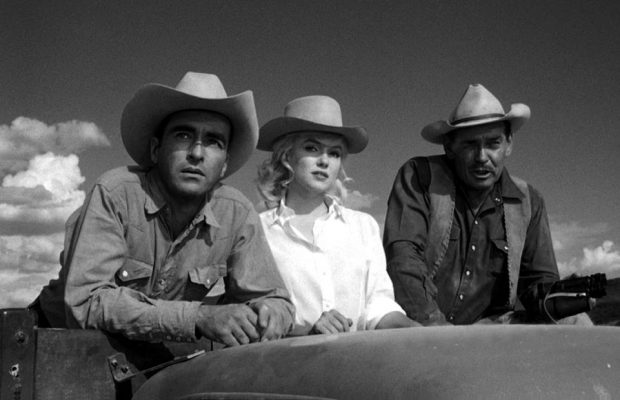
Toronto Film Society presented The Misfits (1961) on Sunday, January 24, 1982 in a double bill with The Treasure of the Sierra Madre as part of the Season 34 Sunday Afternoon Film Buffs Series, Programme 7.
Production Company: Seven Arts/United Artists. Producer: Frank E. Taylor. Director: John Huston. Screenplay: Arthur Miller. Photography: Russell Merty. Editor: George Tomasini. Music: Alex North. Art Direction: Stephen Grimes, William Newberry. Set Decoration: Frank McKelvy. Sound: Philip Mitchell, Charles Grenzbach. Second Unit Photography: Rex Wimpy. Assistant Directors: Carl Beringer, John Gaudioso, Thomas P. Shaw. Special Effects: Cline Jones. Makeup: Frank LaRue, Frank Prehoda and Allan Snyder. Wardrobe: Shirley Strahm.
Cast: Clark Gable (Gay Langland), Marilyn Monroe (Roslyn Taber), Montgomery Clift (Perce Howland), Thelma Ritter (Isabelle Steers), Eli Wallach (Guido), James Barton (Old Man in Bar), Estelle Winwood (Church Lady), Kevin McCarthy (Raymond Taber), Dennis Shaw (Lester), Philip Mitchell (Charles Steers), Walter Ramage (Old Groom), Peggy Barton (Young Bride).
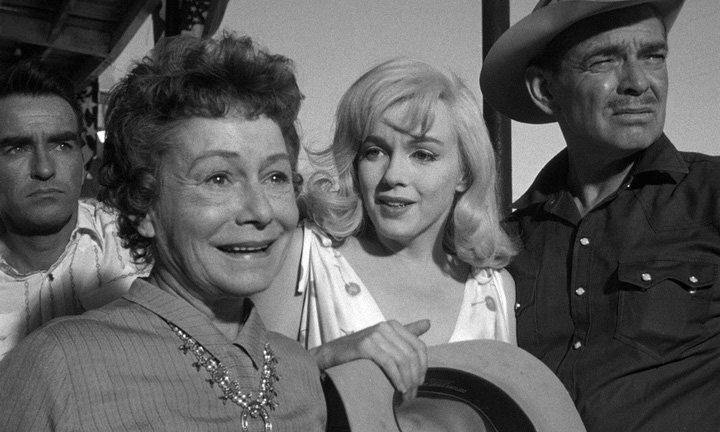
The Misfits reached the screen on a wave of publicity: Clark Gable’s last film, Arthur Miller’s script for his divorced wife, the combination of Huston and Miler, two American artists from whom much had been expected, and whose work during the past few years has yielded so little. Certainly the film’s pretensions live up to its billing. In it, Miller is trying to put some of the American conscience that men can still live freely and as they please on the last frontier, the evidence of the price that must be paid for trying to keep the Western myth alive. The West has been tamed, and Gay, Guido, and Perce are anachronisms. Roslyn, with her intuitive awareness, her inarticulate sympathies, is also the voice of conscience, domesticity, human feeling. This, at least, is what The Misfits seems to be about. But Miller’s script is such a tangle of symbolism, self-pity (“We’re all blind bombardiers”, says Guido) and lachrymose confessions that the film’s core of truth becomes buried in a cloud of soft, spongey verbiage. Huston is content to let the sentimentality pour in waves over the screen. Only the mustang sequence, which is a brilliantly hard set piece, filmed with that fascination with the details of an adventure which has always marked his best work, does he remind us of the kind of director he can be. Gable’s playing, although so sane and balanced that his neurotic outburst comes as a startling breach with the character, is full of likeable confidence and humour: his last performance is one of his best. Eli Wallach takes every opportunity offered for “Method” display, Clift plays obliquely for sympathy, and Thelma Ritter turns in one of her thoroughly bitter-sweet performances. Marilyn Monroe has wonderful moments–capering about the garden, hugging a tree, flinging herself into a bar-room game with a ball, turning in long-shot to denounce the cowboys; but the part Arthur Miller has written for her is more than any actress could be expected to play The Misfits, like its heroine, is lost and forlorn, a film lacking the courage of its own despair.
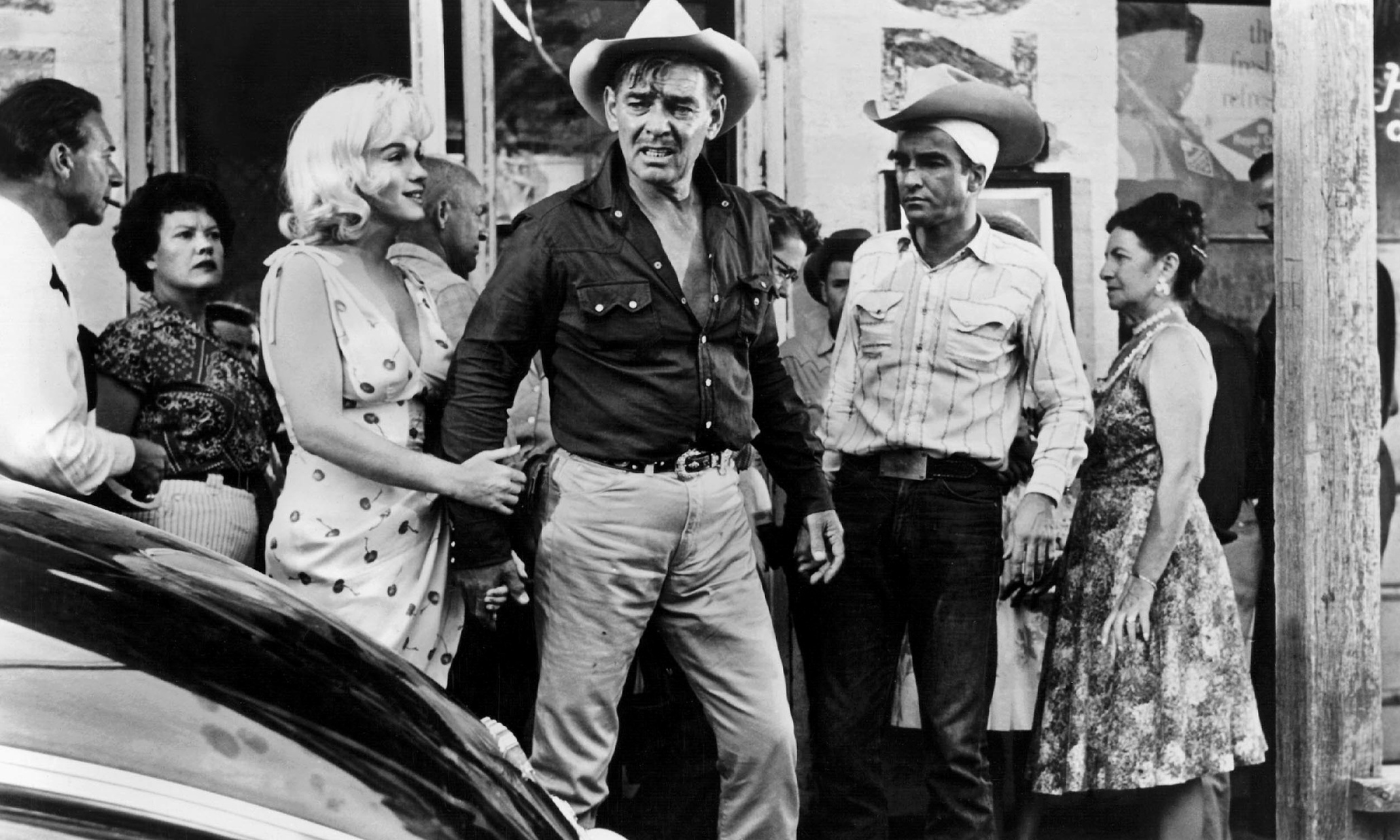
Monthly Film Bulletin, July 1961, pp 92-93
Notes compiled by David Wells
You may also like...
-
News

Frances Blau
Toronto Film Society | February 27, 2024On Monday, February 26th, 2024, Toronto Film Society lost longtime friend, supporter, and board member Frances Blau. Known for her sense of humour, her love of film, her generosity,...
-
Special Events

Arsenic and Old Lace (1944) at the Paradise Theatre
Toronto Film Society | April 21, 2024Toronto Film Society presents Arsenic and Old Lace (1944) at the Paradise Theatre on Sunday, May 5, 2024 at 2:30 p.m. Screwball comedy meets the macabre in one of...
Programming

Virtual Saturday Night at the Movies
Toronto Film Society | April 11, 2024Toronto Film Society is back in the theatre! However, we’re still pleased to continue to bring you films straight to your home! Beginning Season 73 until now we have...
4-
 Toronto Film Society | April 21, 2024
Toronto Film Society | April 21, 2024
-
 Toronto Film Society | November 6, 2022
Toronto Film Society | November 6, 2022
-
 Toronto Film Society | August 1, 2023
Toronto Film Society | August 1, 2023
Donate to Toronto Film Society – We’re now a Registered Charity!
-
Copyright © 2017 Toronto Film Society.

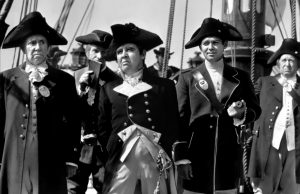
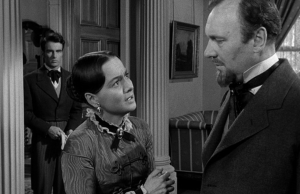
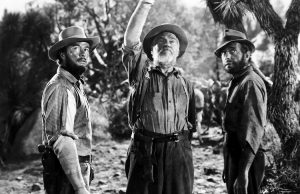
Leave a Reply